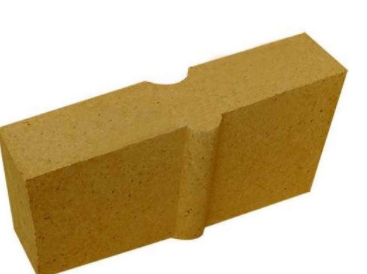- 06
- Sep
3 shortcuts to improve the high temperature creep of refractories
3 shortcuts to improve the high temperature creep of refractories

High temperature creep property refers to the relationship between the deformation of refractory material and time under a constant high temperature and fixed load.
The service life of high-temperature kilns is as long as several years, or even more than ten years. In the end, the high-temperature damage of refractories is not due to strength, but the result of the combined effects of high temperature, strength, and time. For example, the checker bricks of hot blast stoves work at high temperature for a long time, especially under the action of load and high temperature, the bricks gradually soften and produce plastic deformation, and their strength decreases until they are broken. Special attention is paid to temperature and structure. The inhomogeneity of the kiln structure and serious plastic deformation of some bricks will cause the overall destruction of the kiln structure.
Therefore, improve the creep resistance of refractory materials, study the changes in the structure of the refractory materials under high temperature stress; inspect the quality of the products; evaluate the production process; predict the changes in the load of the refractory products in practical applications in the kiln design; evaluate the products The performance and so on have very important meanings.
Generally speaking, to improve the creep resistance of refractory materials, mainly through the following three ways:
1. Purify raw materials: improve the purity of raw materials or purify raw materials to minimize impurities such as low melting substances and strong fluxes (such as Na2O in clay bricks, Al2O3 in silica bricks, SiO2 and CaO in magnesia bricks, etc.) The content of the product, thereby reducing the content of the glass phase in the product (this is the recommended method to improve the performance);
2. Strengthen the matrix: introduce the “reverse creep effect” material. For example, a certain size of quartz particles is introduced into the ingredients of high alumina bricks. When high alumina bricks are used at high temperature, the synthesis reaction of mullite continues to occur in the quartz SiO2 and Al2O3 in the high alumina raw materials, and the reaction process is accompanied by a certain degree of volume. Swell. The effect of this volume expansion is the “reverse creep effect”, which can offset the shrinkage deformation during material creep, thereby improving the creep resistance of high alumina bricks.
3. Improve the process: reasonably design the particle gradation of the batch material, increase the molding pressure of the green body, obtain a high-density green body, reduce the number of pores in the product, and increase the effective components of the product against creep; formulate a reasonable firing system (Sintering temperature, holding time, heating and cooling rate), so that the necessary physical and chemical reactions in the material are fully carried out, and the required phase composition and structure are obtained.
